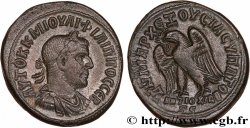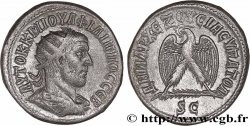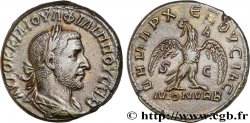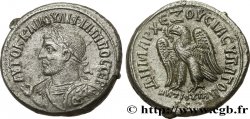v32_0379 - PHILIPPUS Antoninien
MONNAIES 32 (2007)
Starting price : 280.00 €
Estimate : 450.00 €
unsold lot
Starting price : 280.00 €
Estimate : 450.00 €
unsold lot
Type : Antoninien
Date: printemps - été
Date: 249
Mint name / Town : Syrie, Antioche
Metal : billon
Millesimal fineness : 450 ‰
Diameter : 22,5 mm
Orientation dies : 6 h.
Weight : 4,12 g.
Rarity : R2
Officine: 4e
Emission: 3e
Coments on the condition:
Exemplaire sur un flan bien centré des deux côtés. Portrait de toute beauté. Revers où tous les détails sont visibles. Une fine patine grise recouvre l’exemplaire
Catalogue references :
Obverse
Obverse legend : IMP M IVL PHILIPPVS AVG.
Obverse description : Buste radié, drapé et cuirassé de Philippe Ier à droite, vu de trois quarts en arrière (A2).
Obverse translation : "Imperator Marcus Iulius Philippus Augustus", (L’empereur Marc Jules Philippe auguste).
Reverse
Reverse legend : FIDES EXERCITVS.
Reverse description : Quatre enseignes militaires “signa” dont la troisième surmontée d'un aigle tourné à droite “aquila”.
Reverse translation : “Fides Exercitus”, (La Fidélité de l'armée).
Commentary
Ce type semble beaucoup plus rare que ne le laissent supposer les ouvrages généraux. David Sear donne ce type à l’atelier de Viminacium (RCV. 8931). Nous suivons les conclusions de Thibaut Marchal qui, dans sa base internet a répertorié actuellement 847 antoniniens de l’atelier d’Antioche, dont 24 pour ce revers de Philippe Ier auguste. Néanmoins, les monnaies d’Antioche restent rares pour cette période. Sur notre exemplaire, le portrait fait penser à Philippe II auguste pour lequel quatre exemplaires de ce revers sont recensés, mais en général, le buste du fils est toujours imberbe alors que celui du père est barbu comme sur notre exemplaire.







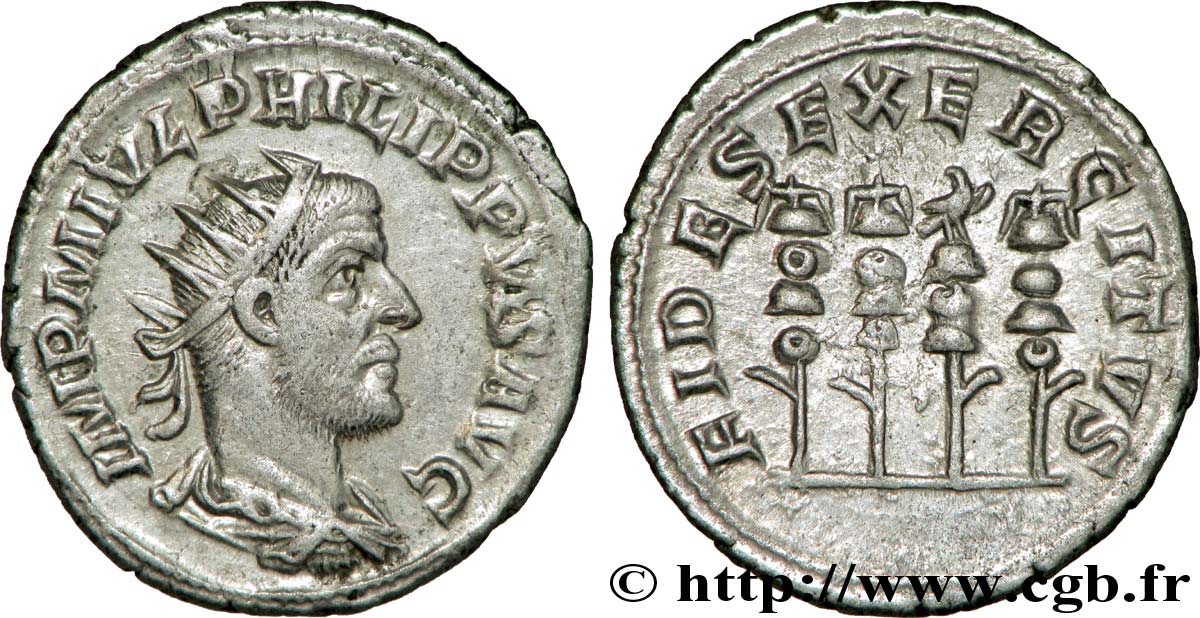
 Report a mistake
Report a mistake Print the page
Print the page Share my selection
Share my selection Ask a question
Ask a question Consign / sell
Consign / sell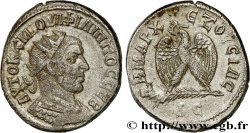
 Full data
Full data